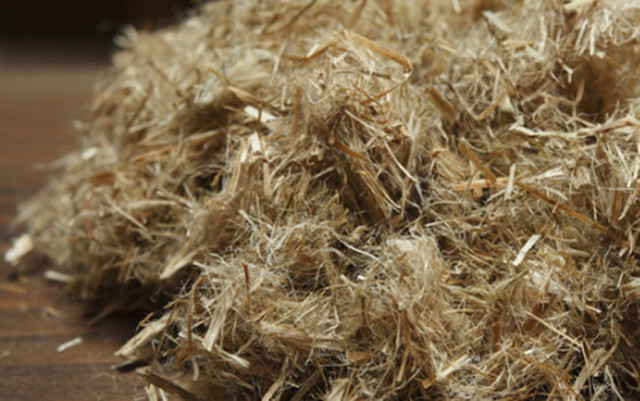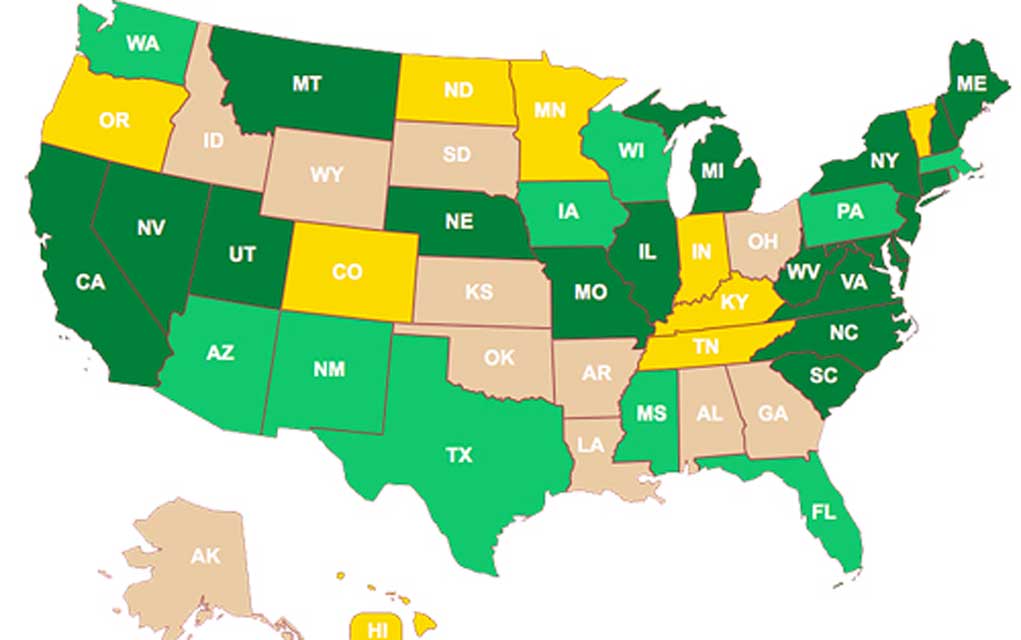Source: boulderweekly.com

Hemp fiber, pictured here, has an estimated 25,000 applications, but is currently illegal to grow under federal law.
In 2015 U.S. consumers bought over $500 million in hemp products, buying everything from food, cosmetics, fabrics and paper to construction material, insulation and plastics. It is estimated that there are more than 25,000 product applications for industrial hemp and yet the hemp market struggles to capitalize on that vast potential. Currently listed as a federal Schedule 1 drug in the Controlled Substances Act, it is illegal to grow the plant or possess live seeds. But recent activity at the state and industry level is beginning to challenge that long standing status.
Here in Colorado a small number of permits became available in 2014, allowing farmers to plant and harvest hemp under the plant’s newly legal status, as granted by Amendment 64. As one of 28 states with laws to grow or research hemp, Colorado’s laws are among the most transparent and accommodating in the nation because farmers are allowed to keep their seeds to create Colorado strains particularly well suited for the state’s dry climate.
Not only are the seeds crucial to future crops, but Boulder-based Activated Living Hemp Foods touts the enormous, yet untapped, health benefits of hemp sprouts and hopes to bring them direct to the consumer market. But what began as a simple business model quickly converged with the larger, complicated political context of the plant.
It is illegal to bring live seeds into the country and illegal to transport them across state lines, complicating Activated Living’s otherwise simple business model. Hemp seeds currently on the market are sterilized, meaning they cannot reproduce or sprout and are stripped of a majority of their nutrients.
“I am totally focused on changing the national environment for our business,” says Rebecca Gretz, co-founder of Activated Living Hemp Foods, “because in order for our business to move forward, there has to be a separation between hemp and marijuana, and hemp has to be removed from the Controlled Substances Act.”
The Agricultural Act of 2014 (commonly known as the 2014 U.S. Farm Bill) was the first step, creating a legal distinction that defines industrial hemp as Cannabis sativa — with a THC concentration of less than or equal to .03 percent — and any plant with a higher amount of THC as marijuana.
With the legal definitions established, hemp enthusiasts it is now possible to remove industrial hemp from the Controlled Substances Act without affecting the status of marijuana. This would effectively deschedule hemp from the ranks of illegal drugs and allow it to be treated like a crop, the basis of enabling the domestic production of industrial hemp.
The Industrial Hemp Farming Act of 2015 was introduced to the U.S. Senate in January of last year to do just that, but has since struggled to gain support and momentum. With lackluster congressional enthusiasm, the bill sits in a sort of purgatory where it seemed doomed to waste away its days in committee hearings, never making it to an actual congressional vote. But, more than a year after its introduction, the bill is beginning to accumulate support.
In November 2015, the National Hemp Association (NHA), a Boulder-based nonprofit representing the entire U.S. hemp industry, launched a federal campaign to pass the Industrial Hemp Farming Act of 2015.
“That single bill is the most important thing we can do, essentially removing the bottleneck to allow farmers to get seeds,” says NHA Communications Director Neshama Abraham. “If they can get seeds, then they can start cultivating a domestic crop of hemp. In that way, this is the most important jobs bill to come in front of Congress this year. Right now, all the hemp products that are made in the U.S. are made from imported hemp. Why not cultivate it domestically and create jobs for rural farmers, here, in our own country?”
 National Hemp Association
National Hemp Association
Its most notable endorsement came from Democratic senator and presidential hopeful Bernie Sanders in October of last year. The 10th co-sponsor to come on board, Sanders’ endorsement brought national attention back to the bill and highlighted the bipartisan support of the bill, with five senators from each party co-sponsoring the bill.
Republican Colorado Senator Cory Gardner signed on to the bill last March and is not ready to give up on it just yet. He sees the legalization of industrial hemp as a benefit to Colorado and the U.S. agricultural community and economy as a whole.
“Removing industrial hemp from the Controlled Substances Act is commonsense not only because it’s a safe substance with several practical applications, but also it would create jobs, support our agricultural community, and spur economic growth,” Gardner said in a statement to Boulder Weekly. “Hemp, which requires little water to grow, provides farmers with another viable option, and is an ideal fit for Colorado’s climate in particular.”
Aside from job creation, there are other advantages to legalizing industrial hemp. It is a cash crop, meaning that it does not require many inputs — in this case, herbicides, pesticides or water — allowing farmers to turn their harvest into a profit more easily and more sustainably. This is owed to the naturally occurring resiliency of the plant that is well-suited to most U.S. growing climates.
Opponents to the bill cite food safety issues due to the lack of thorough testing on the possible effects of products or foods made from industrial hemp. They are also wary of sending mixed messages to youths being educated about the dangers of marijuana, a line that drugwatch.org claims is too thin.
But now that industrial hemp is firmly disassociated from marijuana in federal law, these claims are increasingly inconsequential in comparison to sustainability and economic arguments for industrial hemp.
“Plato has this analogy of when it is the right time for something, it all of the sudden goes from pure individual thought to become available in multiple people’s minds at once,” Abraham says. “Hemp is doing that. It has just shown up in so many people’s consciousnesses. We all think the Industrial Farmer’s Act needs to happen right now, this year, because this is the time for industrial hemp.”
No comments:
Post a Comment